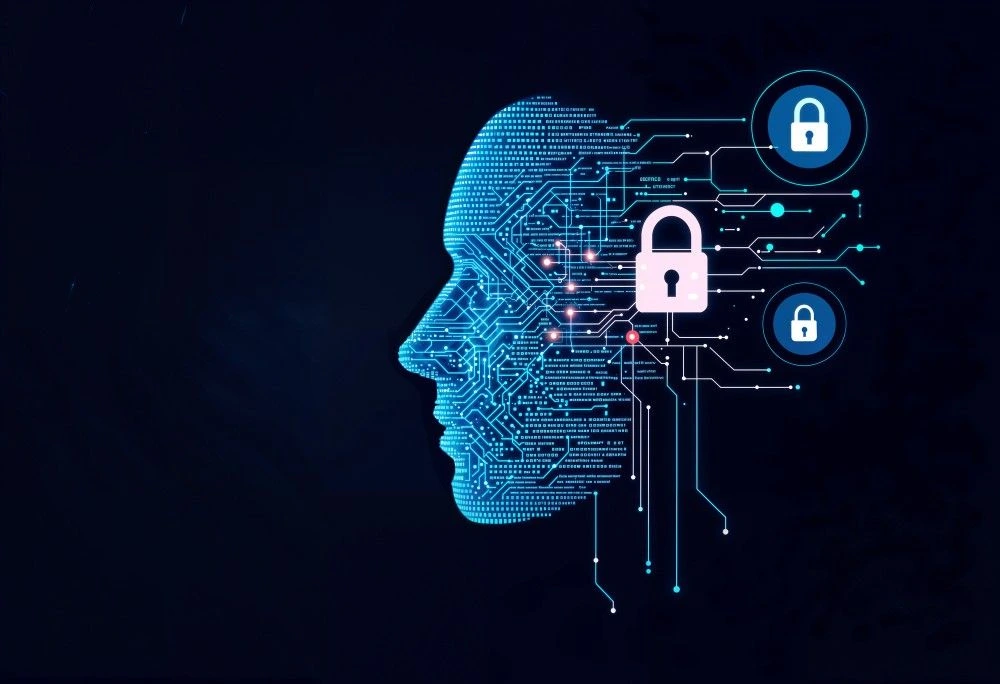Alright, so let’s talk about why AI is a game-changer in cybersecurity. Keeping up with all these digital threats? It’s overwhelming, honestly. Hackers get smarter, attacks evolve, and it’s almost impossible to keep track of it all manually. But that’s where AI steps in. The benefits of AI in cybersecurity are huge—it’s like having an extra set of eyes that never sleeps, helping companies stay a step ahead. Here’s a breakdown of how AI is making a difference in cybersecurity.
1. Spotting Threats Early
Probably one of the most crucial benefits of AI in cybersecurity is that it can spot threats way earlier than traditional systems. Older systems need updates, they miss new types of threats. But AI? It’s learning constantly. It analyses tons of data at once and picks up on anything that looks off. So, instead of just reacting, companies can actually stop things before they even become a problem.
2. Faster Reaction to Attacks
AI doesn’t just detect a problem—it jumps into action immediately. If there’s a breach, AI can contain it, sometimes within seconds. Think about it: instead of waiting for IT teams to get to it, AI can shut down parts of the system right then and there. This speed is everything when there’s sensitive data at stake. Real-world examples show that response times drop from hours to seconds with AI.
3. Automating the Boring Stuff
Cybersecurity has a lot of repetitive work, like checking logs, scanning networks, and finding vulnerabilities. Honestly, it’s time-consuming. One of the cool benefits of AI in cybersecurity is that it can handle all this for you. This frees up IT teams to focus on the bigger issues. Instead of getting bogged down with maintenance, they can dive into strategy and make systems even stronger.
4. Better User Authentication
Passwords are one thing, but AI can make user authentication way better. It doesn’t just rely on something you know; it can look at how you type, how fast you log in, even your mouse movements. This added security makes it way harder for hackers to mimic someone. So, one of the benefits of AI in cybersecurity is this extra security layer, making it tough for anyone who isn’t supposed to be there to get in.
5. Predicting Future Threats
Another cool thing AI does? It doesn’t just protect from today’s problems; it can actually look ahead. AI analyzes old data to see trends and can predict if a certain type of attack might happen soon. If certain threats keep popping up in particular industries, for example, AI picks up on this, helping companies get prepared before anything happens. This proactive approach is one of the benefits of AI in cybersecurity that’s moving organizations from defense to offense.
6. Cutting Down on False Alarms
Let’s be real: too many false positives can be a real headache. When your security system flags harmless things, it just causes distractions. AI can cut down on this by understanding more accurately what a real threat looks like. For example, if someone logs in from a new place, instead of just flagging it, AI considers things like past travel patterns. One of the benefits of AI in cybersecurity here is helping teams focus only on real threats, keeping them sharp and efficient.
7. Strengthening Endpoint Security
With remote work, there’s a lot of concern over endpoint security—devices like laptops, tablets, and phones are everywhere now. AI-driven tools can monitor these devices around the clock, watching for any unusual activity, even if they aren’t connected to the company’s main network. So whether it’s from a cafe, another country, or a home office, AI makes sure these endpoints are just as secure as in-office systems.
8. Better Data Privacy
Data breaches are not just costly—they can ruin reputations. AI helps by securing data at different levels, monitoring access points, and flagging anything unusual. One of the benefits of AI in cybersecurity is that it can also keep track of who’s accessing what information and make sure that only authorized people can get in. This is huge for industries like healthcare and finance where privacy is everything.
9. Real-Time Malware Detection
Malware is always evolving. Attackers get creative with new ways to break in. AI is great at detecting and even getting rid of malware in real-time. It looks at the behavior of software—so even if it’s a new type of malware, AI can still identify it fast. Traditional systems might not pick up on new forms right away, but AI’s learning ability lets it stay one step ahead.
Conclusion
To sum it up, the benefits of AI in cybersecurity are huge. AI helps catch threats early, speed up responses, and even automate all those routine checks that eat up time. It’s like having a superpowered assistant keeping everything secure. Sure, it’s not a total replacement for human expertise, but it’s an incredible tool that makes cybersecurity teams’ lives easier and way more effective.
In a world where threats just keep getting more advanced, the benefits of AI in cybersecurity aren’t just nice to have—they’re essential for keeping data, systems, and even brand reputations safe.
Frequently Asked Questions
What are the main benefits of AI in cybersecurity?
AI in cybersecurity provides benefits like early threat detection, faster response times, reduction in false alarms, improved user authentication, and automation of repetitive tasks, making security teams more efficient.
How does AI help in identifying cybersecurity threats?
AI uses machine learning to analyze large volumes of data and recognize unusual patterns. This allows it to detect potential threats early on, often before they can cause harm.
Can AI prevent all cyber threats on its own?
While AI significantly enhances security, it’s not foolproof. It works best as a support tool alongside human expertise, helping to improve overall cybersecurity but not fully replacing manual oversight.
How does AI improve data privacy in cybersecurity?
AI monitors access points and tracks data usage to ensure that only authorized personnel can access sensitive information, enhancing data privacy and security compliance.
What role does AI play in malware detection?
AI analyzes software behaviour in real-time, identifying malware even if it’s a new, unknown variant. This allows AI to detect and sometimes neutralize malware before it causes damage.




Pingback: Top 9 AI Innovations Transforming the Tech Industry
Pingback: How to Monitor IoT Devices Securely and Prevent Cyber Threats - collected4u